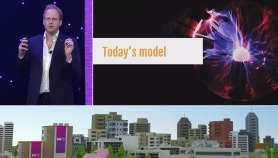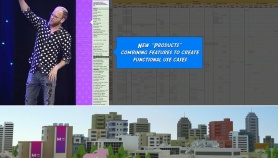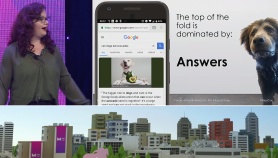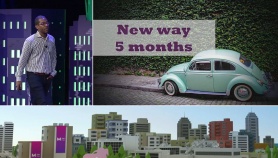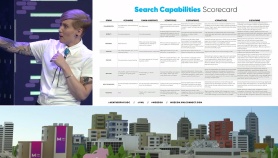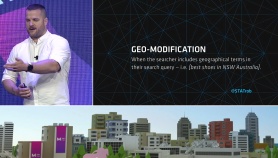$299.00 Original price was: $299.00.$62.00Current price is: $62.00.
- This course is available – Download immediately
- Same author: MozCon
- Lifetime support – Unlimited downloads.
- The quality exactly the same as salepage
- Over +7000 Courses, aAudioBooks, eBooks available.
 Purchase this course you will earn 62 Points worth of $6.20
Purchase this course you will earn 62 Points worth of $6.20Elevate your skills with the MozCon 2018 – MozCon course, available for just $299.00 Original price was: $299.00.$62.00Current price is: $62.00. on Utralist.com! Browse our curated selection of over 60,000 downloadable digital courses across diverse Uncategorized. Benefit from expert-led, self-paced instruction and save over 80%. Start learning smarter today!
- This course is available – Download immediately
- Same author: MozCon
- Lifetime support – Unlimited downloads.
- The quality exactly the same as salepage
- Over +7000 Courses, aAudioBooks, eBooks available.
Purchase MozCon 2018 – MozCon courses at here with PRICE $299 $62
The MozCon 2018 Video Bundle
26 lessons from the brightest minds in online marketing and SEO. Anytime. Just press play.
The Democratization of SEO
By: Jono Alderson
How much time and money do we collectively burn by fixing the same kinds of basic, “binary,” well-defined things over and over again (e.g., meta tags, 404s, URLs, etc), when we could be teaching others throughout our organizations not to break them in the first place? As long as we “own” technical SEO, there’s no reason (for example) for the average developer to learn it or care — so they keep making the same mistakes. We proclaim that others are doing things wrong, but by doing so we only reinforce the line between our skills and theirs. We need to start giving away bits of the SEO discipline, and technical SEO is the easiest piece for us to stop owning. It’s time for more democratization, education, collaboration, and investment in open-source projects so we can fix things once, rather than a million times.
Content Marketing Is Broken and Only Your M.O.M. Can Save You
By: Oli Gardner
Traditional content marketing focuses on educational value at the expense of product value, which is a broken and outdated way of thinking. We all need to sell a product, and our visitors all need a product to improve their lives, but we’re so afraid of being seen as salesy that somehow we got lost, and we forgot why our content even exists. We need our M.O.M.s! No, not your actual mother. Your Marketing Optimization Map — your guide to exploring the nuances of optimized content marketing through a product-focused lens. In this session you’ll learn data and lessons from Oli’s biggest ever content marketing experiment, and how those lessons have changed his approach to content; a context-to-content-to-conversion strategy for big content that converts; advanced methods for creating “choose your own adventure” navigational experiences to build event-based behavioral profiles of your visitors (using GTM and GA); and innovative ways to productize and market the technology you
Mobile-First Indexing or a Whole New Google
By: Cindy Krum
The emergence of voice-search and Google Assistant is forcing Google to change its model in search, to favor their own entity understanding or the world, so that questions and queries can be answered in context. Many marketers are struggling to understand how their website and their job as an SEO or SEM will change, as searches focus more on entity-understanding, context and action-oriented interaction. This shift can either provide massive opportunities, or create massive threats to your company and your job — the main determining factor is how you choose to prepare for the change.
Bigger Data Requires Bigger Tools: How BI Helps You Tell Stronger Stories
By: Wil Reynolds
The analysts are coming for your job, not AI (at least not yet). Analysts stopped using Excel years ago; they use Tableau, Power BI, Looker! They see more data than you, and that is what is going to make them a threat to your job. They might not know search, but they know data. In this talk, Wil documents his obsession with Power BI and the insights he can glean in seconds which is helping every single client at Seer at the speed of light. Search marketers must run to this opportunity, as analysts miss out on the insights because more often than not they use these tools to report. We use them to find insights.
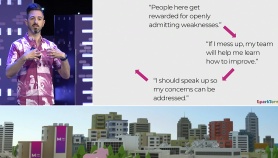
Why Nine out of Ten Marketing Launches Suck (and How to Be the One that Doesn’t)
By: Rand Fishkin
More than ever before, marketers are launching things — content, tools, resources, products — and being held responsible for how/whether they resonate with customers and earn the amplification required to perform. But this is hard. Really, really hard. Most of the projects that launch, fail. What separates the wheat from the chaff isn’t just the quality of what’s built, but the process behind it. In this presentation, Rand will present examples of dismal failures and skyrocketing successes, and dive into what separates the two. You’ll learn how anyone can make a launch perform better, and benefit from the power of being “new.”
Your Red-Tape Toolkit: How to Win Trust and Get Your Search Work Implemented
By: Heather Physioc
Are your search recommendations overlooked and misunderstood? Do you feel like you hit roadblocks at every turn? Are you worried that people don’t understand the value of your work? Learn how to navigate corporate bureaucracy and cut through red tape to help clients and colleagues understand your search work — and actually get it implemented. From diagnosing client maturity to communicating where search fits into the big picture, these tools will equip you to overcome obstacles to doing your best work.
The Problem with Content and How We Fix It
By: Casie Gillette
Everyone thinks they need content but they don’t think about why they need it or what they actually need to create. As a result, we are overwhelmed with poor quality content and marketers are struggling to prove the value. In this session, we’ll look at some of the key challenges facing marketers and how a data-driven strategy can help us make better decisions.
Near me or Far: How Google May Be Deciding Your Local Intent for You
By: Rob Bucci
In August 2017, Google stated that local searches without the “near me” modifier had grown by 150% and that searchers were beginning to drop geo-modifiers — like zip code and neighborhood — from local queries altogether. But does Google still know what searchers are after? For example: the query [best breakfast places] suggests that quality takes top priority; [breakfast places near me] indicates that close proximity is essential; and [breakfast places in Seattle] seems to cast a city-wide net; while [breakfast places] is largely ambiguous. By comparing non-geo-modified keywords against those modified with the prepositional phrases “near me” and “in [city name]” and qualifiers like “best,” we hope to understand how Google interprets different levels of local intent and uncover patterns in the types of SERPs produced. With a better understanding of how local SERPs behave, SEOs can refine keyword lists, tailor content, and build targeted campaigns accordingly.
2018 Preview: Watch “Ranking is a Promise: Can You Deliver?” by Dr. Pete Meyers from Moz
In our rush to rank, we put ourselves first, neglecting what searchers (and our future customers) want. Google wants to reward sites that deliver on searcher intent, and SERP features are a window into that intent. During one of our highest rated sessions at MozCon 2018, Moz’s own SEO scientist, Dr. Pete Meyers discusses mapping keywords to searcher intent and capitalizing on the promise of ranking to drive results that attract clicks and customers. Enjoy!
Get MozCon 2018 – MozCon, Only Price 62$
Tag: MozCon 2018 – MozCon Review. MozCon 2018 – MozCon download. MozCon 2018 – MozCon discount.
Purchase MozCon 2018 – MozCon courses at here with PRICE $299 $62
Cultivate continuous growth with the MozCon 2018 – MozCon course at Utralist.com! Unlock lifetime access to premium digital content, meticulously designed for both career advancement and personal enrichment.
- Lifetime Access: Enjoy limitless access to your purchased courses.
- Exceptional Value: Benefit from savings up to 80% on high-quality courses.
- Secure Transactions: Your payments are always safe and protected.
- Practical Application: Gain real-world skills applicable to your goals.
- Instant Accessibility: Begin your learning journey immediately after buying.
- Device Compatible: Access your courses seamlessly on any device.
Transform your potential with Utralist.com!
Related products
= 125 Points
Uncategorized
Cognitive Rehabilitation Therapy: Practical Interventions and Personalized Planning – Jane Yakel
= 85 Points
Uncategorized
= 85 Points
Uncategorized
= 85 Points
= 84 Points
Uncategorized
Legal Risks in Nursing Documentation – Use Extreme Caution When Skimming the Facts – Rosale Lobo
= 40 Points
= 84 Points
Uncategorized
= 85 Points



